Search Results
Fine Jewelry University Articles matching: “Gold content 025 US”
Showing only FJU Article results. Click here to show all results.
Fine Jewelry University (Show All FJU Articles)
-
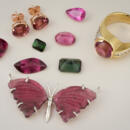
Gem in the Spotlight: Tourmaline
… the power to grant enlightenment, give power over spiritual affairs, reconcile opposites, and change base metals to gold. Tourmaline has a special place in our hearts as California natives because it is one of the few gems that are found… array of colors. In fact, tourmaline is found in almost any color you can imagine, and people have most likely used and appreciated it for hundreds of years. But, before the advent of modern gemology, most tourmaline was believed to be…
-
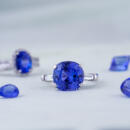
Gem in the Spotlight: Tanzanite
… tanzanite in the world. The tiara also contains 913 diamonds and 803 tsavorite garnets all set in 18 karat white gold. It is owned by former Apple CEO Michael Scott who routinely loans it out for display at museums. Care and Cleaning of … Tanzanite is 1,000 times rarer than diamond. But, what makes Tanzanite so popular is its color. Tanzanite’s gorgeous color is a captivating mix of blue and purple. The deep hues of violet, indigo, and blue come together in an unrivaled…
-
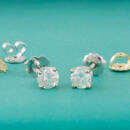
Styles of Earring Backs
… Irritant – If used with costume jewelry made of non-precious metals, it may cause irritation to sensitive skin. Gold options found on more valuable jewelry do not typically have this problem. Lever Backs (European Backs) Lever backs, …Keep reading; we have your answers. Friction Backs (Butterfly Backs) Also called “butterfly backs,” and sometimes “push backs.” These are undoubtedly the most common style of earring back. They work on earrings with posts, using …
-
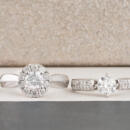
Anatomy of a Ring
… never know it was sized looking at the shank with your naked eye. Over time, the shank can wear thin—yes, even gold and platinum can wear away. In such cases a jeweler can “re-shank” the ring by replacing the metal at the bottom of the … on the top part, the ring shank is generally said to start at the point that the design stops. A jeweler will usually add or remove metal from the bottom of the shank when sizing a ring. This can sometimes be done so well that you …
-

How Are Lab Grown Diamonds Made?
… the imagination of scientists and visionaries alike. Just like the alchemists of old who sought to turn lead into gold, many have tried to achieve this impressive feat. We have only recently been able to produce gem quality, lab grown … in the field. In 1893, he claimed to have successfully made a diamond by heating charcoal to 3,500 degrees Celsius inside a carbon crucible. Many attempts were made to reproduce his techniques with some reported successes, but none …
-
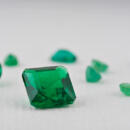
Gem in the Spotlight: Emerald
…and Mrs. O. Roy Chalk in 1972 and can be seen on display at the National Museum of Natural History in a platinum and gold ring surrounded by 60 pear-shaped diamonds. According to workers at the Muzo mine in Columbia, it is one of the …Springtime exudes life, full of bright colors and renewed energy. Emerald, May’s gemstone, captures this enthusiasm for life in rich elegance. This precious gemstone has been revered for over 4,000 years and is associated with …